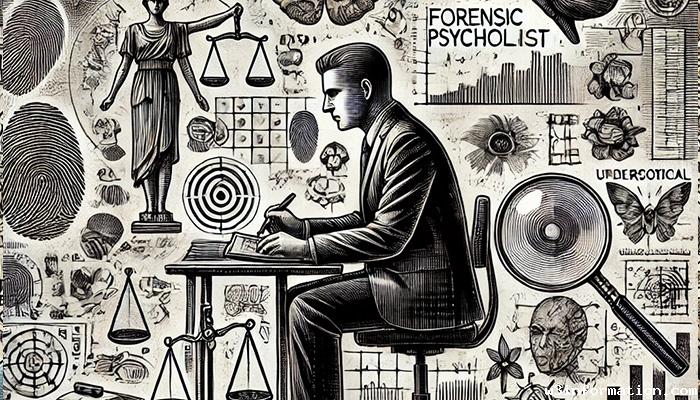Forensic Psychology: Understanding Criminal Behavior
Forensic psychology connects psychological studies with judicial procedures to analyze criminal actions and support legal operations. Forensic psychologists use their knowledge of psychological factors behind criminal behavior to develop prevention strategies and rehabilitation programs and to influence judicial decisions. The following overview details essential components of forensic psychology with respect to criminal behavior analysis.
The Role of Forensic Psychology
Forensic psychologists work in various capacities to:
Assess offenders for mental health conditions.
Provide expert testimony in court.
Develop offender profiles to assist in investigations.
Create and implement rehabilitation programs

Theories of Criminal Behavior
Different psychological theories provide explanations for why people choose to commit crimes. These include:
Biological Theories: The biological approach to understanding criminal behavior examines genetic factors and physical anomalies including brain defects and hormonal disruptions which can make a person prone to committing crimes.
Social Learning Theory: The Social Learning Theory proposes that criminal actions develop when individuals observe and replicate the behaviors of others and receive reinforcement in the form of rewards.
Cognitive Theories: This perspective looks at how people's reasoning patterns guide them to perform criminal actions through the justification of destructive behavior.
Psychodynamic Theories: Psychodynamic theories argue that criminal tendencies originate from unresolved unconscious conflicts and traumatic childhood events.
Risk Factors for Criminal Behavior
The study of risk factors enables us to determine who might have a greater chance of committing crimes. Key factors include:
Environmental Influences: Poverty combined with inadequate education and violent surroundings forms a triad of environmental factors.
Family Dynamics: The presence of parental neglect along with family abuse or criminal activities.
Psychological Disorders: Psychological disorders that contribute to criminal behavior include antisocial personality disorder as well as schizophrenia and substance abuse.
Peer Influence: Association with delinquent peers or gangs.
Assessment and Profiling
A variety of tools helps forensic psychologists assess individuals.
Psychological Testing: Psychological Testing evaluates both cognitive skills and personality characteristics while examining mental health disorders.
Behavioral Analysis: Behavioral Analysis seeks to find predictable patterns in behavior that can foresee future actions.
Criminal Profiling: Forensic psychologists create offender profiles by integrating psychological principles with collected evidence.
Rehabilitation and Prevention
The goal of rehabilitation programs is to prevent repeat offenses while assisting former offenders in becoming productive members of society. Strategies include:
Cognitive-Behavioral Therapy (CBT):
Cognitive-Behavioral Therapy enables offenders to identify destructive thoughts and transform them into healthier thought patterns.
Anger Management Programs: Teaches strategies for controlling aggression.
Substance Abuse Treatment: Substance abuse treatment programs target addiction problems which lead to criminal actions.
Educational and Vocational Training: Improves opportunities for legal and productive lifestyles.
Legal and Ethical Considerations
Forensic psychologists face intricate ethical and legal challenges which include:
Maintaining confidentiality while balancing legal obligations.
Ensuring unbiased assessments.
Providing testimony based on scientific evidence.
Cultural and Social Contexts
The way criminal behavior occurs and gets interpreted depends heavily on cultural and social factors. Forensic psychologists consider:
Cultural norms and values.
Socioeconomic disparities.
The legal and justice systems contain systemic biases.
Conclusion
Understanding criminal behavior requires forensic psychology because this field provides essential insights into addressing these behaviors. The examination of psychological and biological elements along with social factors behind criminal actions by forensic psychologists leads to the development of better justice systems and safer communities. The work of forensic psychologists helps solve crimes while preventing future criminal activity through targeted interventions and rehabilitation methods.
 DIY Holiday Decor Ideas on a Budget
DIY Holiday Decor Ideas on a Budget
 How to Create a Healthy Meal Plan for the Week
How to Create a Healthy Meal Plan for the Week
 Discover your top 10 comforting meals to enjoy during the winter season
Discover your top 10 comforting meals to enjoy during the winter season
 Tips for Stress-Free Holiday Travel
Tips for Stress-Free Holiday Travel
 Mobile Video Editing Apps to Try
Mobile Video Editing Apps to Try
 Mobile Health Apps: Best of 2025
Mobile Health Apps: Best of 2025